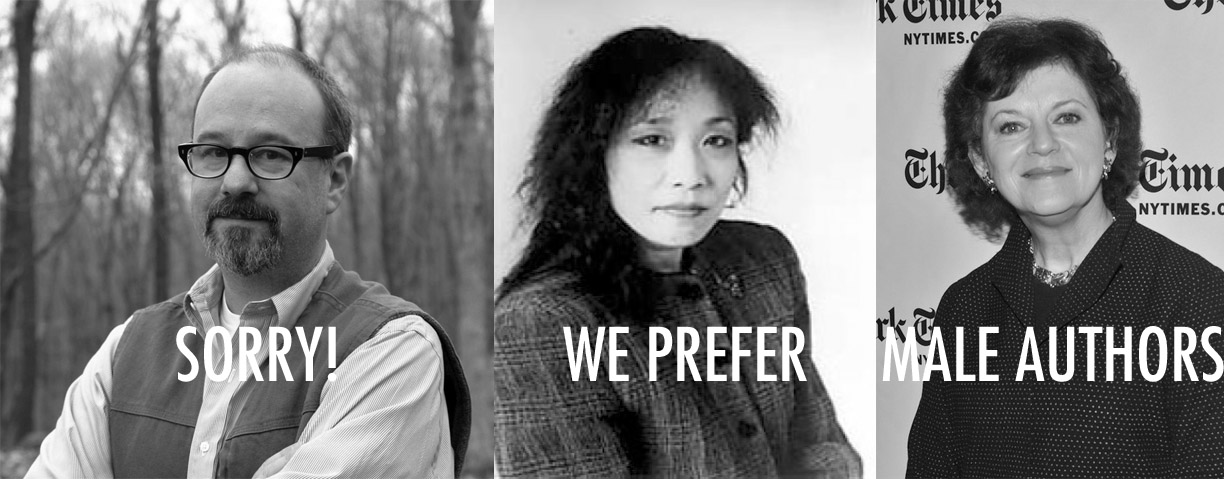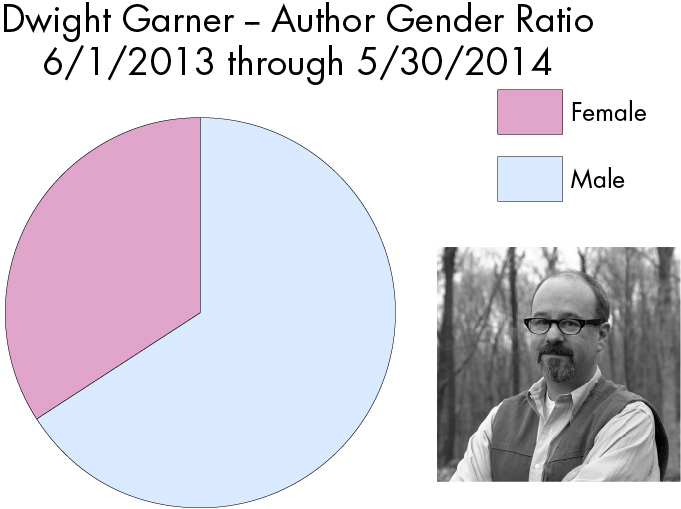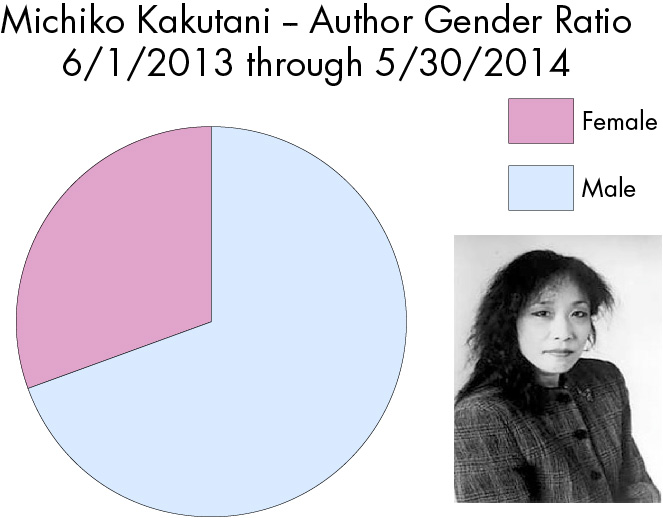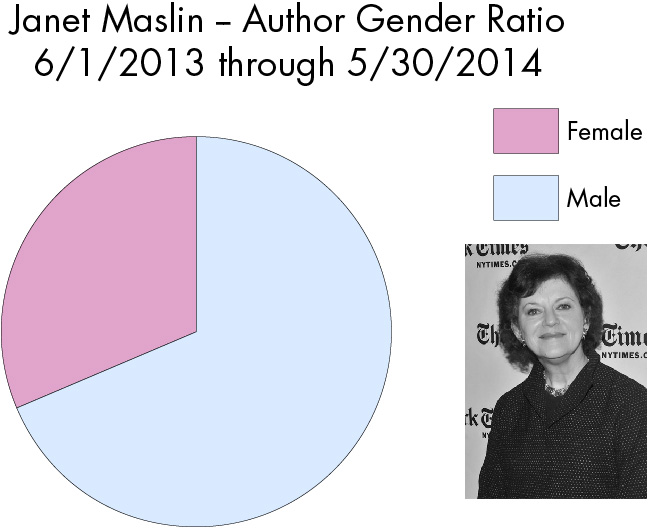On July 21, 2014, 3:AM Magazine published the second most preposterous essay about books of this year. It was purportedly a review of Shane Jones’s Crystal Eaters, only to turn out to be a non-review that was purportedly about something else, but that was really about the reviewer gazing at his own navel. While the most preposterous essay about books of this year (published less than a month before) went to the trouble of naming names, thereby allowing all who took offense at it to align themselves into factions and swiftly attack the author, the second most preposterous essay about books of this year attacked Roxane Gay and Justin Taylor in the most pusillanimous manner possible — quoting them without naming them. The second most preposterous essay about books of this year cited Gay’s Goodreads review of Leslie Jamison’s The Empathy Exams (offering the additional claim that Gay never read the book), Gay’s response to an AWP questionnaire, and Taylor’s HTML Giant assessment of Tao Lin’s Shoplifting from American Apparel as “a work of startling interiority.” This was not only disrespectful towards Gay and Taylor, but also greatly unhelpful for anyone wanting to piece together the purported literary world that the essay was trying to map and pinpoint. The essay was written by a middling writer named Lee Klein, who spearheaded an online literary magazine called Eyeshot for several years before running out of gas. Klein’s forthcoming novel, The Shimmering Go-Between, which was sent to me out of the blue a few months ago, is not very good. It is not very good, not because I disagree with Klein’s essay or because of any allegiance I may have for Roxane Gay or Justin Taylor, but because it fails to live up to my extremely high literary standards. Klein’s novel exists so firmly in that “not very good” realm that it isn’t even worth discussing at length — especially because it is published by a small press. This is just one man’s opinion.
By quoting people without naming them, Klein immediately establishes himself as a cowardly dick, yet claims later that, in not divulging his opinion about Shane Jones’s novel, he was somehow avoiding being a dick and a wuss:
Look: it’s not that I’m a dick when it comes to this stuff. It’s that I like to think that I have standards based on exposure to the interdependent duo of lit and life. But if I decide not to wuss out and instead uphold my particular notion of standards, I’m a dick, and being a dick could lead to dickish reviews of my own stuff from Shane Jones, his friends, and friends of the publisher.
But Lee Klein is fooling himself. His essay was the kind of gutless and dishonest omphaloskepsis (a fancy word for navel gazing, which I serve up because the look of the word makes me very happy and it slyly acknowledges a literary masterpiece, thus representing an altogether different and more benign omphaloskepsis) that does nobody any favors. The author (in this case, Shane Jones) may be left wondering why the reviewer (in this case, Lee Klein) went to all that trouble, further contributing to needless confusion. The reader has no real idea why the reviewer went to all that trouble. The preposterous essay ultimately becomes little more than performance art, one swiftly forgotten in the kudzu of assholes with opinions, possibly discouraging readers from reading anything more from Lee Klein — including the very novel (again, not a very good one) that he has hoped to get people to read in the first place by writing the provocative essay.
Here’s how I heard about Shane Jones. A number of people told me that his latest novel, Crystal Eaters, was quite good. These people had no vested interest to tell me this, other than their considerable passion for good books. Moreover, they told me this in person, not online. Now I have an independent mind that will form its own opinion, as I’m sure that you (the reader) do. I am sure that some of you are disagreeing with what you’re reading right now. But it is also a completely natural impulse to want to get in on something that other people with smart sensibilities are enjoying, unless you are a nihilist who enjoys being miserable. So if Shane Jones’s book was as good as these people were saying, it seemed worth checking out.
On April 20, 2014, I contacted Eric Obenauf at Two Dollar Radio and asked if he could send me a copy. On May 2, 2014, Obenauf got back to me, apologizing for his delay in response (entirely unnecessary, but Obenauf is a total pro) and telling me that he was out of galleys. I thanked Obenauf and told him that if he had any finished copies to spare, I’d be happy to read the book when it was available. The entire exchange was cordial. I knew Obenauf wouldn’t begrudge me if I didn’t get around to reading the book. Obenauf knew that I had been trying to write something about his excellent outfit, Two Dollar Radio, for quite some time and it was really a matter of waiting for the right book to come along, something that would cause my patch of the earth to tremble. Both of us were doing the best we could. A few weeks ago, a finished copy of Crystal Eaters arrived in my mailbox. But I had ten books I had to finish reading first.
That changed this week. When I read Klein’s essay, I realized that I had to put everything else aside and read Shane Jones’s book. Even if I ended up hating Jones’s book, the only possible remedy to Klein’s vulgar rejoinder was to read Crystal Eaters, feel it and think about it, and perhaps forge these thoughts into a carefully considered opinion. It turns out that I like Crystal Eaters a great deal and that Jones is a smart and imaginative writer. And I hope to write a separate essay extolling his book further.
I knew that it was possible to form an opinion without compromising my tastes or my ethics because, at some point within the past year, I read another book published by Two Dollar Radio. The author and I were bandying about the possibility of him appearing on my podcast, The Bat Segundo Show. While I liked the author, the book itself was not to my liking. I didn’t want to express phony enthusiasm for the book, but I also didn’t want to leave the author in the lurch. So I sent him the following email:
First off, my profound apologies in getting back to you later than expected. I have read ___________ in full and, while I enjoyed a chunk of the neglected perspectives you wrote about (with such details as ___________________ and the wry reference to ________________), its narrative approach didn’t congeal with me. I realize that this is part of the point, but I wanted to let the book sit with me for a few weeks before making a final decision.
I have thought about it and, rather than leave you hanging, I’m going to respectfully decline booking a Bat Segundo interview with you at this time. I’m sorry to be the bearer of bad news, but I do have to trust my instincts on this one. If I’m not completely passionate about the book, then my listeners will know. And that would be a disservice to you. But I do know that several authors have enjoyed your book. Please understand that this is just one man’s taste.
If you like, I would be happy to introduce you to Gil Roth of The Virtual Memories Show. He also reads all the books before talking with his authors and yields very smart insights from this guests. You can check out his show here:
http://chimeraobscura.com/vm/
Please also keep me informed of your future work. There are often authors whose present titles don’t sit with me, but who I end up talking with later on down the line
Again, my apologies that this didn’t work out. Like anyone, I much prefer saying “yes” than “no.” But I hope my respectful candor atones for any disappointment on your part. I do wish you the best.
Thanks and all best,
Ed
The author sent back a gracious reply, fully understanding that his book would divide people. The two of us can run into each other while respecting our literary differences. Should he write a book that lights my Roman candle, I will most certainly be one of the first guys encouraging people to head to the fireworks stand. There is nothing about this that involves me selling out my principles or being a dick or a wuss. I’m constitutionally incapable of talking up a book I don’t love. This is what’s known as developing a failsafe bullshit detector — something that pinged off the charts when I read Klein’s essay.




